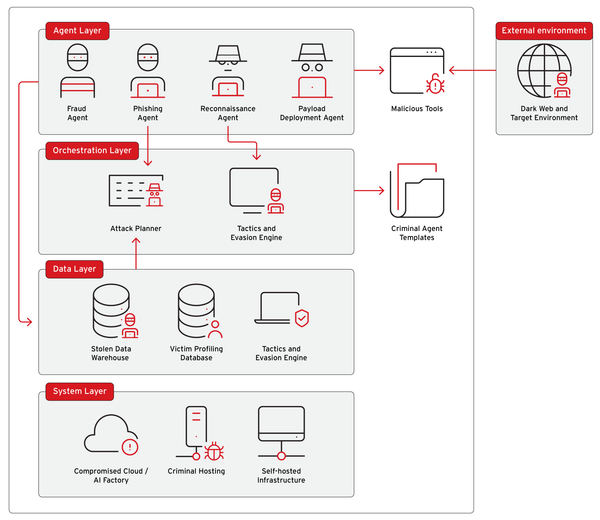Thailand Scams 2025: The Dark Zomia Crisis – When Paradise Becomes a Cyber Slavery Hub

Executive Summary
Thailand faces a dual-front crisis in 2025: while tourists lose millions to traditional street scams in Bangkok and Phuket, the nation's Myanmar border has transformed into the epicenter of a global human trafficking and cybercrime empire. With ₿115.3 billion ($3.2 billion USD) lost annually to domestic scams affecting 72% of Thai adults, and thousands trapped in fortified "scam compounds" across the border, Thailand is simultaneously victim and reluctant host to one of the world's most sophisticated fraud ecosystems.
The crisis reached international attention in January 2025 when Chinese actor Wang Xing was trafficked from Bangkok to Myanmar's KK Park compound, sparking an unprecedented tri-national crackdown. Yet beneath the surface lies a disturbing reality: organized crime groups have built multi-billion-dollar fraud factories along the Thai-Myanmar border, where an estimated 100,000+ people from over 60 countries are held captive, forced to perpetrate romance scams, investment fraud, and pig butchering schemes targeting victims worldwide.
Thailand now leads all EEA countries in digital payment fraud, experiences 3,180 cyberattacks per week per organization (70% higher than the global average), and hosts border regions described as "Dark Zomia"—lawless territories where corruption, vice, and human trafficking flourish under the protection of Myanmar's military junta and ethnic armed groups.
The Crisis By The Numbers
Domestic Scam Landscape
The Scale of Victimization:
- ₿115.3 billion ($3.2 billion USD) lost annually to scams
- 72% of Thai adults encounter scam attempts
- 60% successfully scammed in the last 12 months
- 172 scam encounters per person annually (one every two days)
- ₿12,955.6 average loss per victim
- 27% of parents report their children (ages 7-17) have been scammed
Financial Impact Trends:
- ₿60 billion lost to online financial fraud over two years (2023-2024)
- ₿11.3 billion in losses (Oct 2024 - Feb 2025)
- ₿3 billion saved through government crackdown (45% reduction in daily losses)
- Daily losses dropped from ₿117 million (early 2024) to ₿65 million (Feb 2025)
- 700+ scam cases reported daily at peak
Attack Frequency:
- 3,180 cyberattacks per week per organization (vs. 1,843 global average)
- 70% higher than global average attack rate
- 163,000+ cybercrime complaints (March-Dec 2022)
- ₿27.3 billion in damages (same period)
The Border Compound Crisis
Human Trafficking Scale:
- 100,000+ people estimated trapped in Myanmar scam compounds
- 7,000+ workers released in early 2025 crackdown (described as "drop in ocean")
- 260 victims from 19 countries repatriated in single operation (Feb 2025)
- 6,500 victims in Myawaddy alone from 23 countries
- 4,500 Chinese nationals among those held in compounds
Geographic Hubs:
- KK Park (associated with 14K triad leader "Broken Tooth")
- Shwe Kokko/Yatai New City ($15 billion development front)
- Myawaddy (primary concentration along Moei River)
- Multiple fortified compounds with complete infrastructure
Global Fraud Revenue:
- $43.8 billion+ generated annually by Southeast Asian scam centers
- $18-37 billion in losses to victims across East/Southeast Asia (2023)
- $10+ billion lost by American victims alone (2024)
- Nearly 40% of combined GDP of Laos, Cambodia, and Myanmar
Tourist-Targeting Scams: Paradise Lost
Bangkok: The Scam Capital
Bangkok ranks among cities with the highest reported fraud incidents for tourists, with taxi and car rental problems accounting for 48% of reported fraud cases—far exceeding the 2% rate in cities like Hong Kong and Barcelona.
Top Tourist Scams:
1. The Closed Temple Scam Friendly locals or tuk-tuk drivers approach tourists near major attractions, falsely claiming popular temples like the Grand Palace are closed for ceremonies or holidays. They then offer alternative destinations—conveniently stopping at gem shops or tailors where they receive commissions.
How it works:
- Target tourists near Khao San Road, Royal Palace, Wat Pho
- Claim site closed for "monks praying" or "royal ceremony"
- Offer "special sightseeing tour" for low price
- Take victims to commission-paying businesses
2. The Gem Scam Retailers claim travelers can purchase wholesale luxury items, most often gems, and resell them for large profit back home. In reality, these "gems" are made from glass or synthetic materials and are essentially worthless.
Characteristics:
- Persistent tuk-tuk/taxi drivers receive commissions
- Claims of "one-day government-sponsored sale"
- Thai government/royal family sponsors NO jewelry shops
- Victims lose thousands on worthless stones
3. Taxi/Tuk-Tuk Meter Scams Taxi scams frequently involve drivers who refuse to turn on the meter, opting instead to negotiate flat rates typically much higher than metered fares. Some drivers take unnecessarily long routes to deliberately inflate fares.
Common locations: Airports, hotels, tourist spots Tactics:
- Refusing to use meter
- Claiming meter is "broken"
- Taking circuitous routes
- Demanding double/triple normal fare
4. Jet Ski/Scooter Rental Damage Scam Jet ski and scooter scams are prevalent in beach destinations like Pattaya, Phuket, and Koh Samui. Renters issue faulty or damaged equipment, then upon return demand exorbitant payment for pre-existing damage.
Warning signs:
- No pre-rental damage documentation
- High-pressure demands for immediate payment
- Threats of police involvement
- Claims of "very expensive repairs"
- Armed associates appearing to intimidate
5. Friendship Bracelet & Rose Scam Individuals approach tourists with bracelets or roses, attempting conversation. After the tourist accepts the "gift," they demand payment of ₿20-50 or harass the victim. This also serves as distraction while accomplices pickpocket valuables.
Common locations:
- Piazza del Duomo-style squares
- Venice's Piazza San Marco
- Major tourist landmarks
The Pickpocketing Epidemic
Pickpocketing is quite common, especially in crowded places. Pickpockets are commonly found in popular tourist spots, marketplaces, temples, transport hubs, and attempt to steal phones, passports, wallets, and gadgets.
High-risk zones:
- Trevi Fountain equivalent areas
- The Grand Palace vicinity
- Train stations (especially during boarding)
- Wat Pho and Wat Arun temples
- Night markets and shopping districts
Tactics:
- Team distraction techniques
- Scooter-based bag snatching
- Reaching into stopped vehicles
- Targeting Asian tourists (assumed to carry more cash/cameras)
Digital Tourist Scams
Fake Visa Services & E-Visa Sites In January 2025, VFS Global warned Thai travelers about fraudulent e-visa websites that mimic official Thai visa portals, charging much higher fees than government-approved costs. Applicants using these sites often lose money with no visa granted.
Thailand Digital Arrival Card (TDAC) Scams:
- Official site: tdac.immigration.go.th (FREE)
- Fake sites charge fees for free government service
- Relaunched May 1, 2025 as mandatory requirement
- Many copycat sites with similar URLs
ATM Skimming & Card Fraud While using cards is convenient for tourists, skimming devices and credit card fraud are among the most reported scams affecting foreign visitors. Some ATMs copy card info, or criminals spy on PIN entry.
Protection measures:
- Use ATMs inside bank branches only
- Inspect card slots for bulky attachments
- Cover keypad when entering PIN
- Be aware of surroundings
The Myanmar Border Crisis: Dark Zomia's Cybercrime Empire
The Scam Compound Infrastructure
The Thai-Myanmar border is home to a multi-billion-dollar transnational crime empire comprising two main hubs—KK Park (associated with former 14K triad leader 'Broken Tooth') and Shwe Kokko (linked to Yatai IHG)—both located along the shallow Moei River separating Thailand and Myanmar.





